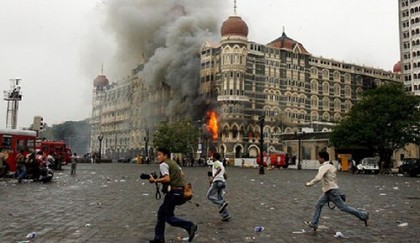
On the heels of the Paris terrorist attacks, two Japanese nationals were captured in territory claimed by ISIS. Days ago, one of them was executed. The aftermath of the shocking events has featured speculation about the extent of terrorism globally and the extent of youthful disaffection that fuels it. Many regions have gone on alert and fear of further attacks is rampant.
Tributes paid to the deceased have been heartening. A heartening resolve has surfaced, dramatized by world leaders linking arms in Paris. In public view, Christian, Jewish, and Muslim leaders were united. But they and their nations face a severe challenge. It goes beyond worries about deterring further attacks. As profound as those worries are, there is a more diffuse threat from terrorism. Incidents such as the execution of hostages and the Paris murders have a multiplier effect.
Media, and social media, make distant events immediate. Talk of terror networks and sleeper cells seizes our imaginations. A primal fear of being attacked creeps into our thoughts. Some of us respond by succumbing to prejudice. We vilify all Muslims and declare they intend to take over our cities and our lives. Fear overwhelms reason. We imagine that more than a billion Muslims seem committed to our demise. Desperate to fight fear, some resort to prejudice.
The same fear can prompt withdrawal. Far removed from Paris, we can become wary of people who are different, reluctant to venture from familiar confines. We burden daily routine with steps intended to reassure. More locks, restricted movements, fretful glances, home security systems can appear. All bespeak withdrawal in response to fear.
By fanning fear, terrorism wins. Horribly, people were murdered; now millions resort to prejudice or withdrawal. The meaning of the term is now apparent: people are feeling terrorized.
Instead people of faith must refuse to diminish ourselves because of our fear. We combat terrorism by standing firm, by living our lives fully. Then, we win.
William L. Sachs
Tributes paid to the deceased have been heartening. A heartening resolve has surfaced, dramatized by world leaders linking arms in Paris. In public view, Christian, Jewish, and Muslim leaders were united. But they and their nations face a severe challenge. It goes beyond worries about deterring further attacks. As profound as those worries are, there is a more diffuse threat from terrorism. Incidents such as the execution of hostages and the Paris murders have a multiplier effect.
Media, and social media, make distant events immediate. Talk of terror networks and sleeper cells seizes our imaginations. A primal fear of being attacked creeps into our thoughts. Some of us respond by succumbing to prejudice. We vilify all Muslims and declare they intend to take over our cities and our lives. Fear overwhelms reason. We imagine that more than a billion Muslims seem committed to our demise. Desperate to fight fear, some resort to prejudice.
The same fear can prompt withdrawal. Far removed from Paris, we can become wary of people who are different, reluctant to venture from familiar confines. We burden daily routine with steps intended to reassure. More locks, restricted movements, fretful glances, home security systems can appear. All bespeak withdrawal in response to fear.
By fanning fear, terrorism wins. Horribly, people were murdered; now millions resort to prejudice or withdrawal. The meaning of the term is now apparent: people are feeling terrorized.
Instead people of faith must refuse to diminish ourselves because of our fear. We combat terrorism by standing firm, by living our lives fully. Then, we win.
William L. Sachs
 RSS Feed
RSS Feed
